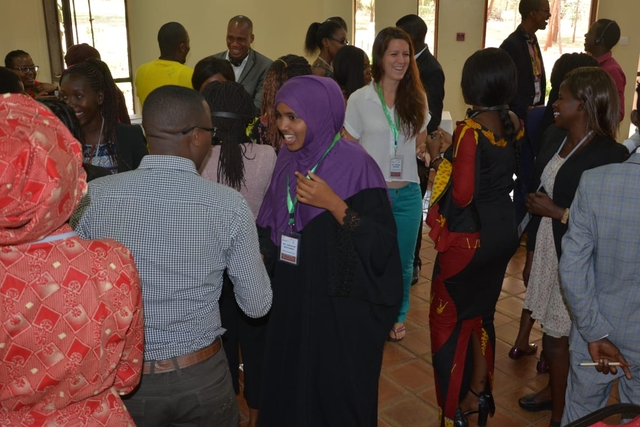
In a thought-provoking conversation with a colleague from Zimbabwe, on why Africa leaders chose to remain in power for long periods, his response was African youth lack mentors- people who will show them that power is not about an individual good but power should be at the service of the community and the citizens. I decided to share this short conversation here because like my friend, I believe that we lack mentorship in Africa and I will briefly explain my reasoning.
It is often said “behind every successful individual is a mentor.” I affirm that statement that behind every successful youth is a mentor. We live in times were corruption, impunity, discrimination and greed characterize the African society. A young person grows up knowing that they need to know someone in a higher position in society before they can get a job. A person needs connections before they can get a scholarship, and those who are born poor might remain poor. This is the reality in Africa! This is what the youth grow up experiencing. But does this mean we cannot change the status quo? We can change the status quo but the key question is how?
Being aware of this gap in mentorship in Africa, organizations like Arigatou International Nairobi and her partners have over time tried to fill in the space to provide mentorship to youths in the continent. Relying on the African saying which goes like “it takes a village to raise a child,” these organizations bring together like minded youth and help in providing a platform for them to grow into men and women who will contribute to the growth of their societies. Such endeavors include the Rejadh Action Camp organized by Arigatou International which brings together young people from different parts of the continent to reflect on their shared challenges. The Rejadh Action Camp is built on the philosophy that “if you want to walk fast you walk alone, but if you want to go far walk as a group.” The Camp is therefore designed to nurture “a generation of adults who are aware of their potential and are grounded in their identity. These youth have a vision for themselves and for the African continent”.
In Africa, a lot of emphasis is placed on youth education, socialization, and youth empowerment, but little attention is given to youth mentorship programs. This lack of vision is informed by the ancient understanding of youth as leaders of tomorrow. Youth are not just leaders of tomorrow, but they are leaders of today, if properly mentored. Any society that is concerned with a better today and future must recognize youth as important social capital. As such there is need to pay close attention on mentoring youth and equipping them with the necessary materials to help them compete in today’s globalized world. Mentorship is very important because most African education systems have been designed to help the youth gain certificates. Little attention is paid to training the youth with practical skills through professional trainings or camps like the Rejadh Action Camp.
Mentorship programs like Rejadh Action Camp provide safe spaces for youths who have faced discrimination, abuse, and suffering to begin dreaming about a better future. Africans needs “a model of mentorship that inspires young people to learn from problem-solving, exploration and imagination where youth repeatedly see and hear that they are valued and important and provide a foundation for critical thinking and a lifetime love for mentorship where the needs and opinions of youth are included.” Youth must actively take part in shaping conversations that pertain to their future by effectively participating in the decision making process.
- Africa Youth Mentorship Network. Retrieved from: https://aymnetwork.org/the-village/
- AmanamHillary Udofia, “African Youths and the Challenge of Mentorship,” in International Policy Digest 02 Apr 2017. Retrieved from: https://intpolicydigest.org/2017/04/02/african-youths-and-the-challenge-of-mentorship/